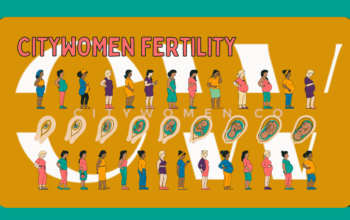
February 10, 2020 at 02:00PM by CWC
Even in a world that’s growing more inclusive by the day, many of us still embrace the concept of monogamy in a strictly binary framework—you either are or you aren’t. “From the day we are born, there’s an overarching narrative that one day we’ll grow up, fall in love with someone of the ‘opposite’ gender, get married and be monogamous,” says LGBTQ+ activist Robyn Ochs, editor of the anthology Getting Bi: Voices of Bisexuals Around the World and Recognize. (ICYWW, “opposite” is in quotations because gender isn’t organized into a neat a binary given that there are more than two genders). That restrictive continuum neither leaves room for different types of monogamy that are more nuanced or any other type of relationship structure.
Well for Ochs, and many other queer- and LGBTQ-identifying folks, that narrative took a plot twist. “Growing up, it never once crossed my mind that I wouldn’t be with a man, monogamously, but then I fell in love with a woman and came out as bisexual,” she says. That’s when she began unpacking why she haphazardly accepted the understanding of monogamy that was foisted on her rather than exploring what makes better sense for the scope of her own life.
“I started to interrogate why I was in a monogamous relationship. I looked within myself, read about polyamory, talked with my non-monogamous friends, and did the work to unlearn what I was told growing up: that monogamy was and is the only way and the right way to structure a relationship,” she says. Ultimately, she found there are actually two types of monogamy: radical monogamy and reflexive monogamy.
The two types of monogamy
ADVERTISEMENT
ADVERTISEMENTKate Spade Autumn/Winter Sale |
The critical difference between the two types of monogamy is whether you choose a monogamous relationship or more so fall into a monogamous relationship. And that’s exactly why Ochs coined the terms radical monogamy and reflexive monogamy.
“Radical monogamy is when you ask yourself what type of relationship actually works best for you, and then choose monogamy.”— Robyn Ochs, LGBTQ+ activist
“Reflexive monogamy is when you’ve internalized messages about monogamy being the way to date and relate, and you are, therefore, monogamous,” she says. “Radical monogamy is when you decide to unpack those cultural biases, ask yourself what type of relationship actually works best for you, and then choose monogamy.”
How to practice radical monogamy
Whether you’re already in a closed, committed relationship or more single than a dollar bill, you can embrace radical monogamy into your relationship structure. The first step, though, is to learn about all relationship structures, says therapist Dana McNeil, LMFT. Talking with your friends about how they came into their relationship structure of choice, and reading up on recommended material can help. (McNeil, for one, suggests More than Two: A Practical Guide To Ethical Monogamy, The Ethical Slut: A Practical Guide To Polyamory, Open Relationships and Other Freedoms, and PolyInfo.org as great sources. And on the podcast front, Kinky, Nerdy, and Poly and Black Radical Queer are worth a listen, she says.)
Seeking a therapist who specializes in polyamory and LGBTQ+ issues is also a great avenue for information. “A good therapist can help you make a pros and cons list about the advantages and disadvantages of being in a monogamous or non-monogamous relationship, for you,” McNeil says, adding that they can help you understand what to do with that information you unravel, and then decide how to move forward.
If after putting in the work, you decide monogamy works best for you, you fall into the radical-monogamy camp of relationship structures. Ultimately, Ochs says, the goal of this work is to realize that that beyond the two types of monogamy, there’s not a single relationship structure that will work for every person. Because of this, it’s key to suss out what works uniquely well for you.
Find out how some are finding happiness in relationship structures other than the two types of monogamy. And if you choose monogamy, here’s how to tell if your monogamous relationship is toxic.
Author Gabrielle Kassel | Well and Good
Selected by CWC

ADVERTISEMENT
ADVERTISEMENTUp to 30% off Gift Sets |







